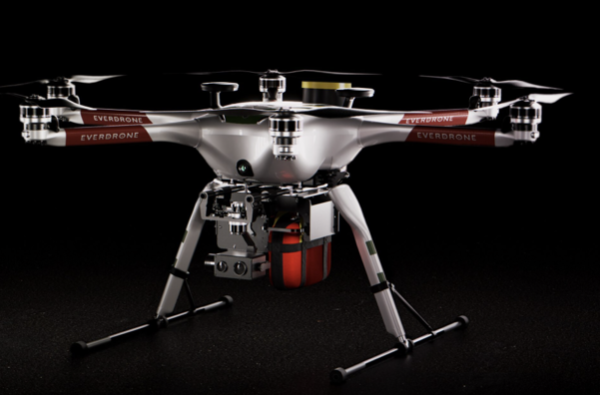The quest for sustainable and eco-friendly energy storage solutions has led to significant advancements in cellulose-based paper batteries. This innovative technology promises to revolutionize the battery industry by offering an environmentally friendly alternative to traditional batteries. Nordic companies and scientific bodies have been groundbreaking innovations to replace tradional batteries with innovative cellulose-based paper batteries. This initial work is now being supplimented and developed by other non-Nordic companies and scientific bodies around the world in addition to the Nordics.
Here is a review of the latest developments from some of the key players in this field:
1. Empa – Swiss Federal Laboratories for Materials Science and Technology
These Green Batteries are being developed by teams led by a Swede, Dr. Gustav Nyström, who is Head Cellulose & Wood Materials. Emerging technologies within smart packaging, biomedical diagnostics, food and environmental sensing are shifting the requirements of electronic components where their service lifetime is now counted in days instead of years. . New green materials and sustainable environmentally friendly processing techniques for electronics are needed, hence the development of new green supercapacitors and batteries. The technologies use non-toxic environmentally friendly materials. These batteries and systems target low power and high-volume applications within e.g. logistics monitoring, food sensing and biomedical diagnostics. At their end of life these devices can be recycled or safely disposed of in composting conditions. Website: https://www.empa.ch
2. Linköping University, Sweden
Linköping University is key player in the field of cellulose-based paper batteries. The university’s Organic Energy Materials group, led by Professor Xavier Crispin, has developed a paper battery that combines cellulose with conducting polymers. This battery is lightweight, flexible, and environmentally friendly. Website: https://liu.se/en
3. KTH Royal Institute of Technology, Sweden
KTH is renowned for its research in sustainable energy solutions. Their Department of Fibre and Polymer Technology has been working on cellulose-based paper batteries that utilize nanocellulose and conductive inks. This research aims to create batteries that are not only biodegradable but also efficient in energy storage. KTH’s commitment to sustainability is evident in their pioneering work. Website: https://www.kth.se
4. VTT Technical Research Centre of Finland
VTT Technical Research Centre of Finland is a leading research institution that has been instrumental in advancing cellulose-based paper battery technology. Their research focuses on combining renewable materials with advanced manufacturing techniques to create high-performance batteries. VTT’s work in this field has the potential to revolutionize the battery industry by providing sustainable and efficient energy storage solutions. Website: VTT
5. BillerudKorsnäs, Sweden
BillerudKorsnäs, a Swedish packaging company, has collaborated with Uppsala University to develop paper-based batteries. Their innovation involves creating cellulose-based batteries on standard paper machines, offering scalable production solutions. The paper battery developed by BillerudKorsnäs is seen as a significant step toward sustainable energy storage solutions. Website: https://www.billerud.com
6. Stora Enso, Finland/Sweden
Stora Enso, a multinational paper and forest products company, is researching lignin-based batteries. Their work on cellulose-based energy storage systems emphasizes the use of renewable raw materials such as lignin and cellulose, reducing the need for critical materials like cobalt. Website: https://www.storaenso.com/en
7. Uppsala University, Sweden
Uppsala University, in collaboration with BillerudKorsnäs, has played a critical role in the development of cellulose-based batteries. Researchers at Uppsala University focus on making these batteries both efficient and scalable, with an emphasis on creating eco-friendly and sustainable energy storage systems. Website: https://www.uu.se/en
8. University of Maryland, USA
Researchers at the University of Maryland are working on creating cellulose-based batteries with enhanced electrochemical properties. Their studies focus on using cellulose aerogels and other sustainable materials to develop high-performance batteries for energy storage.
Website: University of Maryland
9. University of Tokyo, Japan
The University of Tokyo is also exploring the use of cellulose for energy storage. Their research includes integrating cellulose with other renewable materials to create efficient and lightweight batteries. They aim to combine sustainability with high performance in energy storage systems. Website: University of Tokyo
10. Flint Technologies Pte. Ltd.
Flint is a deep-tech startup pioneering the development of paper-based batteries. Their technology integrates cellulose and hydrogel to create eco-friendly, flexible batteries that decompose in soil within six weeks. Flint’s paper batteries offer an affordable alternative to conventional lithium-ion batteries. Flint received US$2 million seed funding from private investors across nine countries and VC firm Hatcher. Website: https://www.madebyflint.co.
11. Nippon Paper, Japan
Nippon Paper Industries has established of a manufacturing subsidiary in Hungary for the production of CMC (carboxymethyl cellulose), material used in the anodes of lithium-ion batteries (LiB) for electric vehicles (EVs. CMC is an anionic, water-soluble polymer derived from cellulose, known for its exceptional thickening, water absorption, and retention qualities, making it environmentally friendly. Its versatility has led to widespread use in food and cosmetics, like toothpaste, and in industrial processes, including paper manufacturing. Website: Nippon Paper




